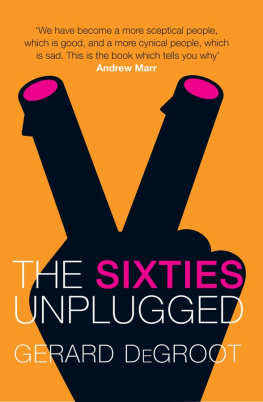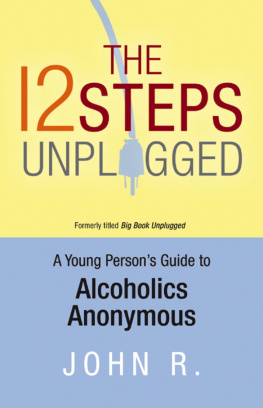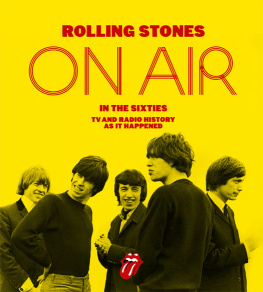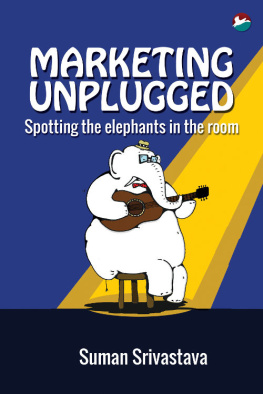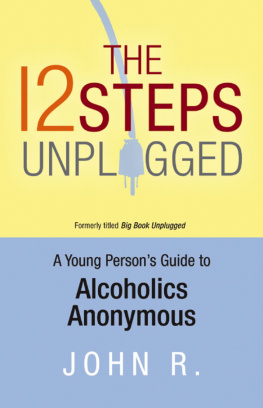DeGroot - The Sixties Unplugged
Here you can read online DeGroot - The Sixties Unplugged full text of the book (entire story) in english for free. Download pdf and epub, get meaning, cover and reviews about this ebook. publisher: Pan Macmillan, genre: Detective and thriller. Description of the work, (preface) as well as reviews are available. Best literature library LitArk.com created for fans of good reading and offers a wide selection of genres:
Romance novel
Science fiction
Adventure
Detective
Science
History
Home and family
Prose
Art
Politics
Computer
Non-fiction
Religion
Business
Children
Humor
Choose a favorite category and find really read worthwhile books. Enjoy immersion in the world of imagination, feel the emotions of the characters or learn something new for yourself, make an fascinating discovery.
- Book:The Sixties Unplugged
- Author:
- Publisher:Pan Macmillan
- Genre:
- Rating:3 / 5
- Favourites:Add to favourites
- Your mark:
- 60
- 1
- 2
- 3
- 4
- 5
The Sixties Unplugged: summary, description and annotation
We offer to read an annotation, description, summary or preface (depends on what the author of the book "The Sixties Unplugged" wrote himself). If you haven't found the necessary information about the book — write in the comments, we will try to find it.
DeGroot: author's other books
Who wrote The Sixties Unplugged? Find out the surname, the name of the author of the book and a list of all author's works by series.
The Sixties Unplugged — read online for free the complete book (whole text) full work
Below is the text of the book, divided by pages. System saving the place of the last page read, allows you to conveniently read the book "The Sixties Unplugged" online for free, without having to search again every time where you left off. Put a bookmark, and you can go to the page where you finished reading at any time.
Font size:
Interval:
Bookmark:
Gerard DeGroot is a Professor of Modern History at the University of St Andrews, where he has taught since 1985. An American by birth, he came to Britain in 1980 to do a Ph.D. at Edinburgh University. He is the author of ten highly acclaimed books on twentieth-century history and has published widely in academic journals and in the popular press. His study of the atomic bomb, The Bomb: A Life, won the RUSI Westminster Medal, awarded in Britain to the best book published in the English language on a war or military topic.
To my family
a fine example of a durable institution
The term unplugged began as a reference to concerts involving rock musicians who set aside their electric instruments and used mainly acoustic ones. The term has since come to mean something unprocessed, natural, and raw. That is my aim. This book is the Sixties unplugged, free of the amplifiers, synthesizers, and filters that hide imperfection and distort meaning. No book that I have written has brought as much joy and provoked as much regret. The size of the task at times threatened to overwhelm me, but I got by with a lot of help from my friends. I extend sincere thanks to Michael Fisher and George Morley, my editors, for all their support and encouragement. Maria Ascher was the most agreeable and supportive copyeditor with whom I have worked. Lotte Veldhuis translated sources in Dutch, while Hannah Hurley and David Onkst helped with research. William McKeen read the manuscript and came to the rescue at an opportune moment. Ingo Cornils, Eric Zolov, and Stephen Tyre read various parts, while Natalie DeGroot checked footnotes and found photos (for a fee). For other favors, small and large, I want to thank Katrin Buchmann, Rob Duncan, Sylvia Ellis, Lisa Ford, Bertram Gordon, Peter Hennessy, Chris Hill, Angus Johnston, James Kennedy, Peter Kuznick, Dirk Moses, Tommy Muggleton, Barbara Neeson, Niek Pas, Andrew Pettegree, Marty Sherwin, Will Skjott, Hew Strachan, Barbara Tischler, Nella Van Dyke, and Clare White. Finally, thanks again to my familySharon, Natalie, and Joshthis time for allowing a motley collection of Sixties characters into our home.
If you remember the Sixties, quipped Robin Williams (and quite a few others), you werent there. He was referring, of course, to the haze created by all those mind-expanding drugs the beautiful people popped, mainlined, and smoked. In truth, however, time has proved an equally effective hallucinogen. As years go by, real events have given way to imagined constructs. The decade has been transformed into a morality play, an explanation of how the world went astray or, conversely, how hope was squandered. Problems of the present are blamed on myths of the past.
Memory acts like a filter, yielding a clearer image of the past. The impurities are removed, producing a distillation both logical and meaningful. We forget, for instance, that back then the music business made a lot of money from silly songs like Yummy, Yummy, Yummy, or that Sergeant Barry Sadlers Ballad of the Green Berets outsold Give Peace a Chance. We remember the Students for a Democratic Society but forget the Young Americans for Freedom. We recall Che Guevaras success in Cuba but not his humiliation in Bolivia. Power, we decide, was exercised by radical students, not right-wing workers. The decade belongs to Kennedy and Dub ek, not Reagan and de Gaulle.
ek, not Reagan and de Gaulle.
This book is the history of a decade, not of an idea. The Sixties is, strictly speaking, a period of 3,653 days sandwiched between the Fifties and the Seventies. It is also, unfortunately, a collection of beliefs zealously guarded by those keen to protect something sacred. Idea has been turned into ideology, with the effect that the Sixties has come to be defined not by time but by faith. Believers object violently to any attempt to redefine the decade, dismissing rebel analysts as reactionary, revisionist, or neoconservative. For forty years, a battle has raged over ownership of the decade, with those who dare to question hallowed truths bombarded with a fusillade of consecrated dogma. In no other period of history has canon been allowed so freely to permeate analysis.
Ownership is often asserted with reference to age. You werent there; you cant possibly understand passes for effective rebuttal, even among those who think themselves serious historians. Apply that logic further and my colleagues in medieval history would be out of a job. In fact, I was there. My earliest memory is the morning after John Kennedys defeat of Richard Nixon in November 1960. I can vividly recall gazing into the sky, desperately hoping to see Yuri Gagarins space capsule passing over San Diego. Granted, my age (I was born in 1955) made me an observer of the decade more than a participant in it. But none of this is remotely relevant. The important point is that I have formed my opinions on the basis of recent research rather than on golden memories of a life once lived.
The past is what happenedhistory the way we view it. For too long, the Sixties has been a sacred zone. The spotlight has been shone upon those people or events we would like to believe were important. But cast aside the rose-tinted spectacles and we see mindless mayhem, shallow commercialism, and unbridled cruelty. Chinas Cultural Revolution was one of the worst atrocities of the twentieth century. The Six-Day War made victims of every nation in the Middle East. In Indonesia, one million people were slaughtered at the temple of greed. An accurate timeline of the decade is packed with events not normally identified with Sixties iconography. How many people, when considering those times, think about Sharpeville, the Gaza Strip, Vatican II, Tlatelolco, Biafra, Jakarta, Curt Flood, or the cannibals of Guangxi? People remember where they were when Kennedy was shot, but most cannot recall the year Reagan was elected governor of California. Yet that election was far more important in shaping the world we live in today.
Nostalgia for the Sixties is strong precisely because so much did not survive. The decade is important for reasons most people do not understand, or care to admit. Revolution was never on the cards. The door of idealism opened briefly and was then slammed shut, for fear of what might enter. Chauvinism and cynicism got the better of hope and tolerance. The Sixties was the time when the postwar consensus began to disintegrate, when society polarized and liberalism went into steep decline. Perhaps the most enduring bequest of the decade is the convenient gallery of scapegoats it provided. To this day, people have been eager to blame their problemsmoral decay, crime, violence, and the plight of the familyon a permissive generation of misfits, delinquents, and revolutionaries more powerful in myth than they ever were in life.
The Sixties was a drama acted out on many stages. The extent to which it has coherence relies in large part on the efforts of subsequent analysts to assign it meaning and structure. The act of writing a book can unfortunately provide the illusion of order; random, chaotic events are linked together in narrative, whose structure implies a continuum that never actually existed. Disparate actions examined under one analytical microscope often suggest a harmony not present at the time. Significance is manufactured through retrospective examination, and connections are easily assumed.
The central point of this book is that most of what happened in the 1960s lacked coherent logic. In order to convey this, I have resisted the temptation to impose order. I have instead presented a tour of the 1960s, an impressionistic wandering through the landscape of a disorderly decade. The tour includes many stops not usually on the Sixties itinerary. Inclusion has been decided on the basis of whether an event happened during the decade, not whether it harmonizes with the idea of the decade. Though there is a vague chronology, causal assumptions are not allowed to intrude upon the journey. This approach might annoy those who like their history linear, who crave a concrete thesis, and who want all the dots connected, all answers provided. But thesis is too often a mask for agenda, a tendency especially noticeable in Sixties scholarship. My thesis is very simple: I feel that too much has been left out of the Sixties portrait, and the omissions have given rise to a misleading, reductive image. What is made of my new revelations, whether they are incorporated into a fresh synthesis or simply ignored, is inevitably up to the reader.
Font size:
Interval:
Bookmark:
Similar books «The Sixties Unplugged»
Look at similar books to The Sixties Unplugged. We have selected literature similar in name and meaning in the hope of providing readers with more options to find new, interesting, not yet read works.
Discussion, reviews of the book The Sixties Unplugged and just readers' own opinions. Leave your comments, write what you think about the work, its meaning or the main characters. Specify what exactly you liked and what you didn't like, and why you think so.

